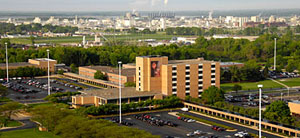 Professional Fields : Professional Fields :
- Business administration and management - corporate structure
- Chemical Engineering
- Water Purification, Wastewater
Treatment, Biosorption
 Degrees
: Degrees
:
 CV Brief : CV Brief :
Katia AZRIAN has recently been appointed a Project
Engineer with the DOW CHEMICAL Corporation in Midland,
Michigan, USA. Following her basic Chemical Engineering degree at
McGill she gained some experience working with CEA in Montreal. Then
she obtained her MBA at the Pepperdine University in California. Her early R&D
work expanded into the fields of
environmental engineering, systems analysis and biosorption.
 Industrial Experience
: Industrial Experience
:
-
Chemical Engineer, Dow
Chemical Corporation, USA (2007-Present)
-
Expert Consulting:
Water quality, Technical and Analytical Methodology
- Chemical Engineer:
CAE Inc., Montreal, Canada (2000-2004)
 ACADEMIC
RESEARCH INTERESTS :
ACADEMIC
RESEARCH INTERESTS :
 Biosorption process : Biosorption process :
 Environmental Physical Chemistry
: Environmental Physical Chemistry
:
Water pollution by toxic heavy metals (mercury, lead and
others) is an urgent problem, especially in areas generating large
amounts of industrial waste and in mining regions. Many types of
natural materials, whether of mineral origin, such as clay, or of
organic origin, such as biological debris, contain molecules that can
react with and trap metal pollutants and thus purify contaminated water.
The aim is to discover which materials most effectively immobilize toxic
metals and to optimize their cost-effective applications. These
studies could be very theoretical aimed at understanding the phenomena
involved, or very practical in developing and applying the remediation
process. |

